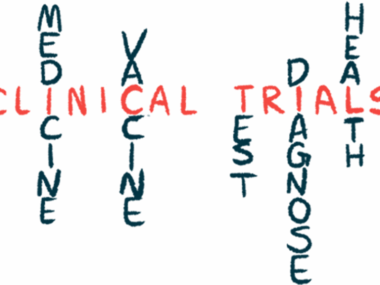Hemophilia B gene therapy Hemgenix to be covered in Canada
Agreement excludes Quebec, where talks continue
Written by |

The cost of Hemgenix (etranacogene dezaparvovec), a one-time hemophilia B gene therapy, will be covered for patients living in Canada through the country’s public healthcare system.
The letter of intent between CSL Behring Canada, Hemgenix’s developer, and the pan-Canadian Pharmaceutical Alliance (pCPA) excludes Quebec. The company said it is working with authorities in Quebec to secure public reimbursement.
The pCA negotiates with pharmaceutical companies to enhance patient access to clinically significant and cost-effective treatments and reduce therapy costs. A Canadian Agency for Drugs and Technologies in Health committee recommended public reimbursement for the treatment in July 2024.
“Having treatment options that can meet the individual needs of people living with hemophilia B is important,” Emil Wijnker, president of the Canadian Hemophilia Society, said in a CSL Behring press release. “The Letter of Intent for reimbursement of Hemgenix is an encouraging step forward, and we urge the provinces and territories to work together, and with CSL Behring, to make this therapy accessible as soon as possible to those who need it.”
Treatment has ‘transformative potential’
“We sincerely appreciate the pCPA for acknowledging the transformative potential of Hemgenix for appropriate adults with hemophilia B,” said Marie-Eve Jacques, general manager at CSL Canada. “This milestone represents a significant advancement in making this revolutionary treatment accessible in Canada. We are eager to work with provinces and territories to ensure public coverage for Hemgenix as quickly as possible.”
In people with hemophilia B, a blood clotting protein called factor IX (FIX) is missing or faulty due to mutations in the F9 gene that encodes its production. As a result, patients become susceptible to the prolonged or spontaneous bleeding episodes that are symptoms of hemophilia.
Patients generally rely on regular infusions of FIX replacement therapies to temporarily supply the missing or faulty clotting factor, helping to prevent or mitigate bleeding episodes.
Hemgenix, given through an infusion into the bloodstream, is designed to deliver a working version of the F9 gene to liver cells. The goal is to enable the continuous production of FIX, helping to prevent the excessive or spontaneous bleeding episodes associated with the disease. It’s also expected to reduce or eliminate the need for routine preventive therapies.
The gene therapy is approved in Canada for hemophilia B patients who rely on routine prophylactic therapies to prevent or reduce the frequency of bleeding episodes, and in the U.S. for adults on prophylaxis or with life-threatening or repeated and serious spontaneous bleeds. The therapy has received conditional approval in Europe for adults with severe or moderately severe hemophilia B who don’t have a history of neutralizing antibodies against FIX.
Hemgenix approvals were mainly based on results from the Phase 3 HOPE-B trial (NCT03569891), the largest gene therapy trial conducted for hemophilia B to date. The study enrolled 54 men with moderately severe to severe hemophilia B who did not have FIX inhibitors and were undergoing preventive therapy.
Top-line trial data showed that annualized bleeding rates dropped by more than 50% during months 7 to 18 after Hemgenix infusion, compared with a six-month run-in period where patients were receiving standard prophylactic treatment. Benefits were sustained up to four years, with nearly all participants (94%) being able to discontinue routine replacement therapies.
No serious side effects directly related to the treatment were reported. Common side effects associated with Hemgenix included elevated liver enzymes, headache, and flu-like symptoms.
The reimbursement agreement in Canada follows others in European countries, including Germany, Denmark, Switzerland, Spain, the U.K., and Austria.
“The availability of gene therapy for hemophilia B represents an important achievement in treatment options for our Canadian patients, with the potential to reduce the burden of regular prophylactic intravenous factor IX infusion therapy and improve quality of life,” said Natasha Pardy, MD, president of the Association of Hemophilia Clinic Directors of Canada. “We look forward to being able to offer our patients this innovative treatment option.”


